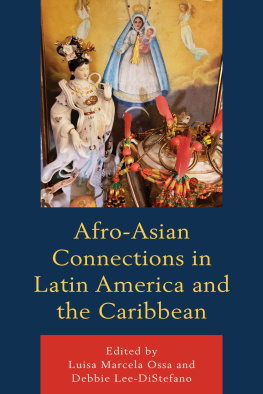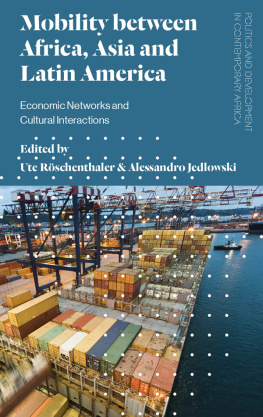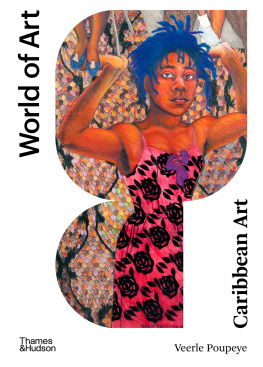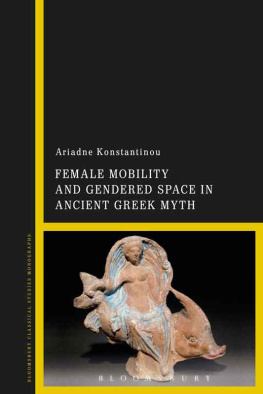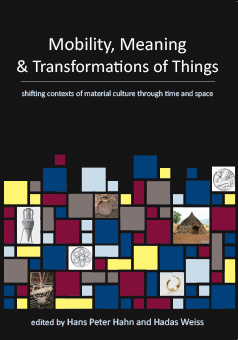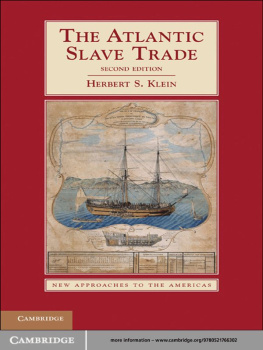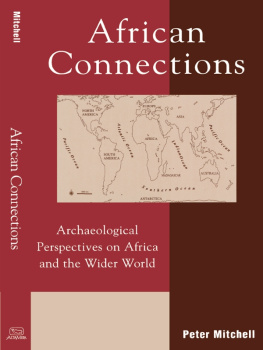Cultural Mobilities Between Africa and the Caribbean
This book investigates the cultural connections between Africa and the Caribbean, using the lens of Mobility Studies to tease out the shared experiences between these highly diverse parts of the world.
Despite their heterogeneity in terms of cultures, languages, and political and economic histories, the connections between the African continent and the Caribbean are manifold, stretching back to the trans-Atlantic slave trade. The authors in this book look to the past as well as to the present, focusing on the manifold mobile connections between the regions subjects, objects, ideas, texts, images, sounds, and beliefs. In doing so, the book demonstrates that mobility extends beyond just the movement of people, and that we can also see mobility in objects and ideas, travelling either in a material sense or in imaginary terms, in physical as well as in virtual spaces.
Bringing the transdisciplinary fields of African Studies, Caribbean Studies, and Mobility Studies into dialogue, this book will be of interest to students and scholars across the humanities and social sciences.
Birgit Englert is Associate Professor in African History and Society at the Department of African Studies, University of Vienna, and a key researcher of the Research Platform Mobile Cultures and Societies.
Barbara Gfllner is a scholar of American Studies and French Studies at the University of Vienna and a member of the Research Platform Mobile Cultures and Societies.
Sigrid Thomsen is a scholar of Comparative Literature and American Studies at the University of Vienna and a member of the Research Platform Mobile Cultures and Societies.
African Diaspora Literary and Cultural Studies
Literary Black Power in the Caribbean
Fiction, Music and Film
Rita Keresztesi
Cultural Mobilities Between Africa and the Caribbean
Edited by Birgit Englert, Barbara Gfllner, and Sigrid Thomsen
For more information about this series, please visit: https://www.routledge.com/African-Diaspora-Literary-and-Cultural-Studies/book-series/ADLCS
First published 2021
by Routledge
2 Park Square, Milton Park, Abingdon, Oxon OX14 4RN
and by Routledge
605 Third Avenue, New York, NY 10158
Routledge is an imprint of the Taylor & Francis Group, an informa business
2021 selection and editorial matter, Birgit Englert, Barbara Gfllner and Sigrid Thomsen; individual chapters, the contributors
The right of Birgit Englert, Barbara Gfllner and Sigrid Thomsen to be identified as the authors of the editorial material, and of the authors for their individual chapters, has been asserted in accordance with sections 77 and 78 of the Copyright, Designs and Patents Act 1988.
All rights reserved. No part of this book may be reprinted or reproduced or utilised in any form or by any electronic, mechanical, or other means, now known or hereafter invented, including photocopying and recording, or in any information storage or retrieval system, without permission in writing from the publishers.
Trademark notice: Product or corporate names may be trademarks or registered trademarks, and are used only for identification and explanation without intent to infringe.
British Library Cataloguing-in-Publication Data
A catalogue record for this book is available from the British Library
Library of Congress Cataloging-in-Publication Data
Names: Englert, Birgit, editor. | Gfllner, Barbara, editor. | Thomsen, Sigrid, editor.
Title: Cultural mobilities between Africa and the Caribbean / edited by Birgit Englert, Barbara Gfllner and Sigrid Thomsen.
Description: London ; New York, NY : Routledge/Taylor & Francis Group, 2021. |
Series: African diaspora literary and cultural studies | Includes bibliographical references and index.
Identifiers: LCCN 2020056802 (print) | LCCN 2020056803 (ebook) | ISBN 9780367708313 (hardback) | ISBN 9781003152248 (ebook)
Subjects: LCSH: Cultural relations. | Caribbean AreaCivilizationAfrican inf luences. | Caribbean AreaRelationsAfrica. | AfricaRelationsCaribbean Area.
Classification: LCC F2169 .C87 2021 (print) | LCC F2169 (ebook) | DDC 972.9dc23
LC record available at https://lccn.loc.gov/2020056802
LC ebook record available at https://lccn.loc.gov/2020056803
ISBN: 978-0-367-70831-3 (hbk)
ISBN: 978-0-367-71480-2 (pbk)
ISBN: 978-1-003-15224-8 (ebk)
Typeset in Bembo
by codeMantra
1 Cultural mobilities between Africa and the Caribbean
Introduction
Sigrid Thomsen, Barbara Gfllner, Birgit Englert
In his essay Timehri, the Barbadian poet and scholar Edward Kamau Brathwaite meditates on his time in Ghana, where he spent eight years as an education officer, and writes about the indissoluble ties between the Caribbean and Africa:
I was a West Indian, rootless man of the world. I could go, belong, everywhere on the world-wide globe. I ended up in a village in Ghana. It was my beginning. [] And I came home to find that I had not really left. That it was still Africa; Africa in the Caribbean.
(Brathwaite, 1996 [1970], pp. 276277)
As Brathwaite, and many others before and after, has shown, contemporary Caribbean culture is inextricably intertwined with ever-evolving traditions in cultural domains such as food, music, fashion, and religions transported across the Atlantic. While the primordial link between Africa and the Caribbean is marked by enforced and violent mobilities, mobilities are never unidirectional. For Brathwaite, his return back to Africa constitutes a transformative journey, one which makes visible the cultural links between the Caribbean and Africa. Not only have African-Caribbean people tried to re-establish their connection to their African roots, but Ghanas Year of Return, which President Nana Akufo-Addo declared in 2019 to celebrate the 400th anniversary of the first Africans arriving in North America, stands as a very recent example of an African country reaching out to its diaspora.
Endeavours to invite the diaspora to trace their heritage and to thereby build awareness of historical, cultural, and social mobilities between Africa and the Caribbean can also be found in the Caribbean. In a similar vein to Zimbabweans fighting against white supremacy, thereby raising awareness among his fans worldwide.
Analysed through perspectives from Mobility Studies, these examples, which have recently made the news, remind us of the manifold ways in which the Caribbean and Africa are tied up in an entanglement of mobile bodies, objects, and ideas which shaped the past both distant and more recent and of how they impact on the present. Both the African continent and the Caribbean are, within themselves, highly heterogeneous, and thus it is clear that any attempt to theorise cultural connections between the two on a more abstract level has its limitations. In this volume, we therefore chose to zoom in on very concrete contexts and to examine the cultural mobilities made visible. The chapters in our volume specifically focus on expressions of human and cultural mobilities between Africa and the Caribbean. Our aim is to explore the processes by which ideas, texts, images, sounds, and beliefs move between Africa and the Caribbean from an interdisciplinary perspective. This volume is situated both at the intersection of the humanities and the social sciences and at the intersection of African, Caribbean, and Mobility Studies, thus widening the scope of Mobility Studies while contributing to the interdisciplinary aim that lies at the fields centre.


